Free Template: How to Write a Fence Contract
Protect the business you’ve worked so hard to build. Download our free fence contract sample & fence contract template available in PDF or Word.

The information contained in this article should not be relied upon as legal, business or tax advice. We encourage you to seek guidance from your legal counsel, business adviser or tax specialist regarding how this sample interior design contract might or might not apply specifically to your business.
If you are a fencing contractor who wants to know how to create a contract for a fencing project, look no further. Here, we lay out the simplest way to write up a legally binding contract, what clauses to include in the document and provide a step by step guide to writing one.
We offer a free, downloadable fence contract template to help you get started. The template is fully editable so you can customize it to your business and use it for every type of fencing project.
Click on a link below to jump to the section you’re most interested in:
- Download our free fence contract template
- What is a fence construction contract?
- Why are fence contract templates important?
- When do you need a fence installation contract template?
- Types of fence contracts
- 19 Clauses to include in a fence contract template
- Tips for after you’ve drafted your fence contract template
Download Our Free Fence Contract Template
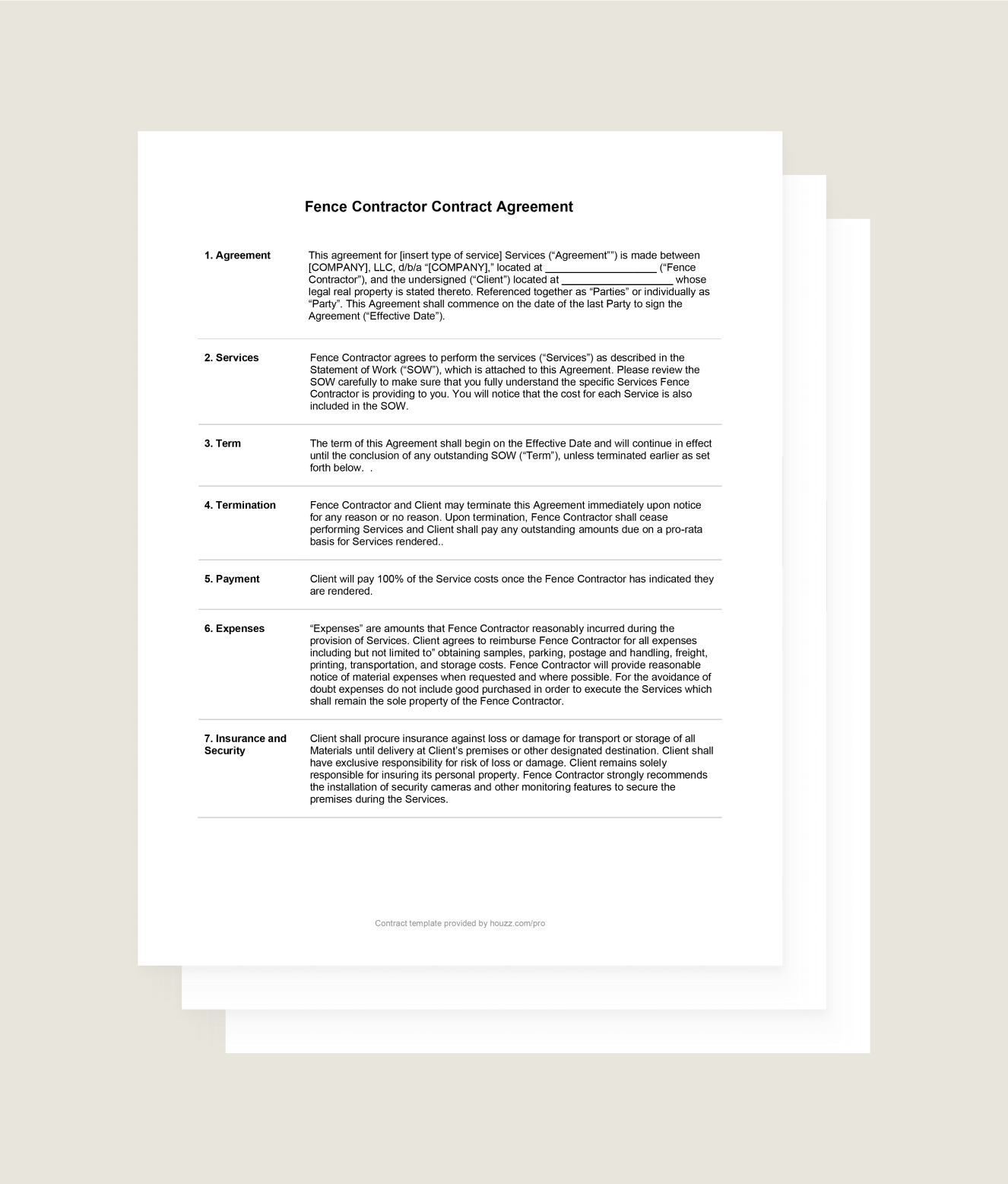
Here's a Fence Contract Template on Us!
Customize this Fence Contract Template to protect your business.
Paying attention to the legal details that protect you and your business may seem like a lot of work when you have so many balls in the air. Luckily, today there are tech tools that ease the burden of writing fence contracts and operating your entire business more efficiently.
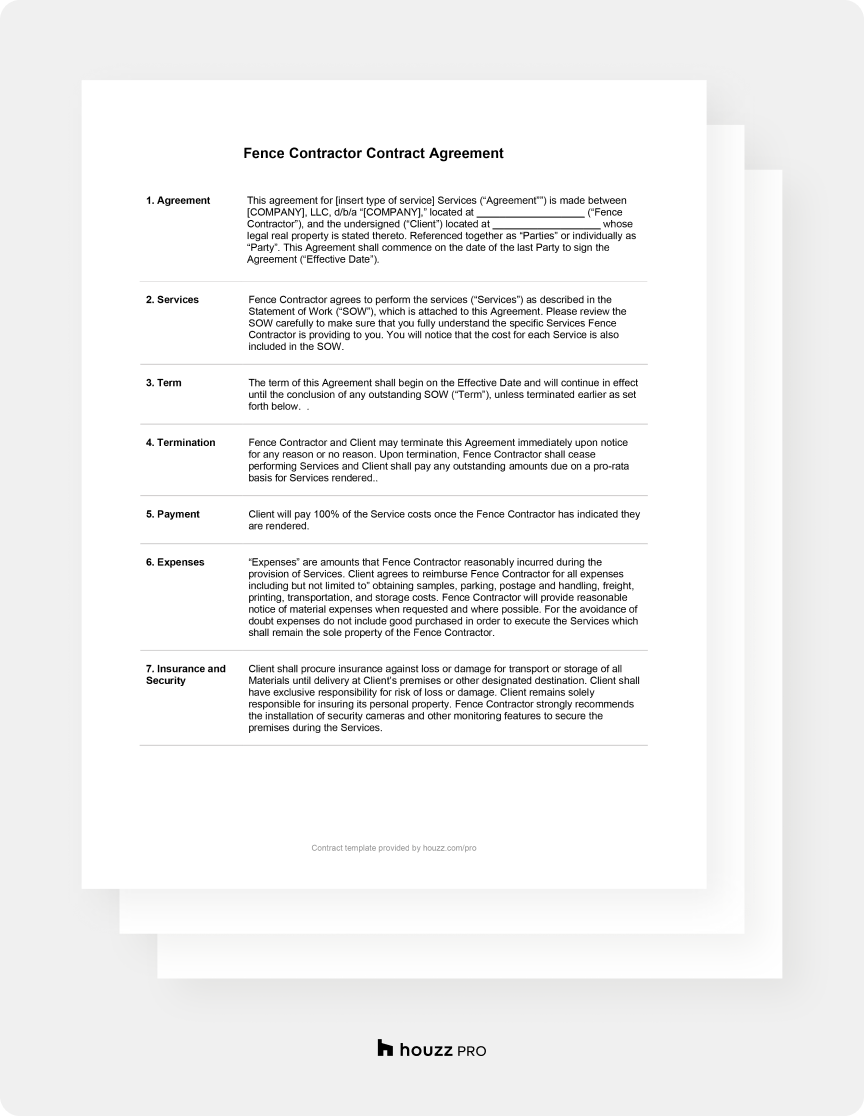
Downloading our free fence contract template is a great way to start because it provides a guide to writing up a contract and includes a sample contract*. But in the long run, there are even better options for taming your administrative tasks and paperwork. Fence contractor software lets you collect e-signatures on all client documents and provides neat storage in the cloud instead of in binders, file cabinets, or truck glove compartments.
Explore our e-signature and single central business hub features with a free trial of Houzz Pro.

What is a fence contract?
A fence contract is the document that outlines the details of a fence project that is signed and agreed upon before any work begins. It lays out the scope of the project, terms and conditions, materials to be used, and other pertinent details. It ensures that you and your client are aligned and on the same page to reduce headaches later on.
Sometimes called a fence contractor agreement, a fence contract is legally binding, and clause requirements can vary from state to state. A fence contract is more comprehensive than a scope of work document or change order because it covers all aspects of the project.

Why are fencing contract templates important?
Protecting both your business and your client, a fencing contract helps keep everyone on the same page and can be referenced should future disputes arise. It puts in writing every aspect of the fencing project and can shelter you from costly legal action or work redos.
The contract outlines the work to be performed, the schedule, the pricing and other legal matters. This provides assurance to both parties that they have an understanding of the scope of the work, terms, and key details for the project. If your fence contract lacks vital clauses, it can put the project, and your bottom line at risk if a disagreement arises.

When do you need a fence contract template?
A fence contract agreement is used by fencing contractors who are installing a fence system or any other type of fencing work. The contract between the contractor and a property owner is delivered and agreed upon before any ground is broken. A fencing business may also have contracts between others such as subcontractors, but this article focuses only on the agreement between the fence contractor and homeowner. Using a fence contract template that is fully editable means you do not have to start from scratch every time you write up a contract for a new project.

Types of Fence Construction Contracts
A fence construction contract covers the pricing for the work. Therefore, you will need to decide which method to use before drafting your contract. These are four common types of fence contractor pricing methods:
- Fixed Price This is a single price that covers the cost of every aspect of the fence project.
- Cost Plus Under this scenario, the client is charged the project cost, and an additional agreed upon fee to cover the profit the contractor is earning on the project. This could be a set amount or percentage of the total project cost.
- Time & Material This method charges for the cost of the materials and an hourly labor rate. The profit margin is incorporated into the hourly rate.
- Unit Pricing Billing is done separately for various parts of the fence project. For example, pouring the concrete to set the posts might be billed as one item.

19 Clauses to Include in a Fencing Contract Template
Here, we outline the most important clauses to include in a fencing contract template. It is not an exhaustive list, and you may want to include others depending on your circumstances. As always, seek professional legal advice to determine your unique contract needs.
- Company & Client Information This covers the name of your business, and your client and the essential contact information for both. Ensure that this is the legal name of the client.
- Construction Property What is the location and address of the property where the fence is being built? Use the description of the property in the agreement whenever possible.
- Mechanics Lien If you use a mechanics lien to put a hold on property and help guarantee payment for a project, note it here. Each state has specific requirements that need to be met to employ liens so make sure you follow the rules in your specific jurisdiction.
- Services Detail the services you will be providing while carrying out the fence project. Provide clarity by noting which are included such as the removal and disposal of the existing fence, and which ones are not.
- Scope of Work Summarize the scope of the project from site preparation to completion. Include the project specifications and dimensions. Include as many details as possible so that every aspect of the project is covered. Think who, what, where, when, why, and how!
- Materials & Expenses Specify the type of fencing being installed, and all other associated materials and expenses, and the cost of each. Provide the exact cost of each and the total cost of the project.
- Payment Terms Explain the payment schedule and terms. Include details on whether there is an initial deposit and when payments are due throughout the life of the project. Note any late payment fees or early payment bonuses.
- Construction Schedule Outline the start date, phases of the project with target dates and the anticipated completion date.
- Permits & Fees Don’t forget to include the cost of building permits and fees for other related licenses.
- Insurance Note what type of insurance your business carries for liability and worker injuries to protect yourself and provide clients peace of mind.
- Conditions & Responsibilities Detail requirements that need to be met before the work begins such as receipt of deposit or acquisition of building permits.
- Refunds, Cancellation or Termination Terms Cover your policies on issuing refunds and what happens if either party seeks to cancel the work or terminate the contract. This protects you as a fence contractor and helps ensure that clients understand the provisions.
- Amendments Note the process for adding additional items to the contract.
- Governing Law Indicates which state, and which state laws, will govern the interpretation of the contract in the event of a dispute. You can also use this section to identify the venue where dispute proceedings would be held.
- Dispute Resolution This covers the procedure for resolving disagreements should they arise such as mediation, arbitration or litigation.
- Warranties & Disclaimers Include the guarantees that accompany your work, what is covered and for how long. Also, state what is excluded from your guarantees to reduce your liability.
- Indemnity Fence construction contracts typically require the contractor to compensate (indemnify) the client for any injury or losses associated with the work or resulting from a breach in the contract. Third parties, such as other subcontractors hired by the client, may also need to be included.
- Force Majeure This clause is used to note that a business will not be liable for unforeseen and unavoidable events such as a natural disaster.
- Signature Terms Include a space for signing and dating the contract while stating that the signer is agreeing to the terms of the contract. A signature is required by both parties to make a contract legally binding. Each state has specific rules around this so be sure to follow the laws in your region.

How to Create a Fence Contract Step-by-Step
Now that we’ve covered what to include in a fence contract, let’s explore the next steps toward drafting the document.
- Create a Budget The contract should include the exact cost of the fence project so make sure you have calculated all the expenses associated with the work, and have a quote or estimate prepared.
- Set a Schedule Determine the end and start dates of the project and target dates for various stages of the work.
- Complete Designs The design phase of the work should be completed before writing the contract so that everyone is on the same page of the style of the fencing being planned and any added touches.
- Establish Terms of Subcontracting To determine the total costs, you will need to establish the number and type of subcontractors needed to do the work. Then, calculate the hourly rates and time requirements and finalize the terms with the subcontractors.
- Define Provisions of Equipment & Materials Another key part of the project is determining the pricing and sourcing of the equipment and materials that will be used to carry out the fencing project from start to finish.
- Finalize the Scope of the Work Make sure you completely understand the scope of the work and that everyone is on the same page. This may require checking back with the client to clarify and confirm their expectations.
- Determine Payment Schedule Set the terms and stages of payment before writing up the fence contract.
- Draft Contract Now that you have crossed the T’s and dotted the I’s on every detail of the fence project, it’s time to draft your contract. Gather all the information and pop each item into the appropriate clauses of the contract.
- Consult With a Lawyer Before you send a contract to a client, protect your business by seeking the advice of a lawyer to ensure that you have adequately covered all the requirements.
- Review & Send Once you are happy and confident that the contract has covered all the bases, review it one more time and then send it to your client.

What’s next? Final Tips for Creating Professional Fence Contract Template
- Research State Requirements States have varying provisions and requirements regarding contracts for construction work. Check the websites of the state or states in which you are conducting business.
- Include Your License Number List your contractor's license number on the contract. It is good practice to include this information on all your business documents such as estimates, invoices and your website. Besides the legal implications, licensing signals the professionalism of your business, and adds assurance for clients.
- Seek Counsel from a Professional Lawyer To make sure your contract is legally airtight, it’s important to have a lawyer review any legal language in the contract or the contract in full. Paying an attorney up front to review your contract may end up saving you money in the long run in case of disputes.
- Don’t Forget the Signatures A contract is not valid unless it is signed and dated. Make it easy for clients to sign off by providing them with the ability to sign digitally, or online.
- Store Documents Safely Devise a secure place to store the contract and all your business documents so they can be referred to in the future and to protect the privacy of your clients and your business. Consider cloud-based storage that provides security and makes it easy to organize all your documents in a single place.

Conclusion
Fence contracts are legal documents that protect your business and the clients you serve. Making them as comprehensive as possible can help resolve disputes that may arise during the life of the project, and can save fence contractors costly litigation fees.
A fence contract template is a great way to get started on drafting a contract, and fence contractor software can help you keep all types of client documentation organized. From faster takeoffs to easier estimates, lead generation to client communication, project management to time tracking — Houzz Pro's fence software can help you simplify your business and maximize your profits. Explore the client communication, lead nurturing and file sharing features in Houzz Pro fence contractor software.
Are you seeking more ways to grow your business and run it more efficiently? Learn about How to Write a Fence Estimate with a free template.

Want advice delivered to your inbox?
Unlock industry insights and updates for contractors and design pros
By signing up, I agree to the Houzz Terms of Use and Privacy Policy and that Houzz may use my information to contact me about relevant content, products, and services.


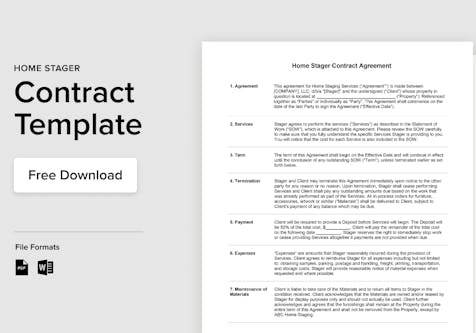
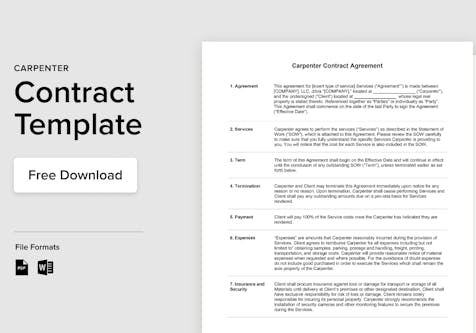
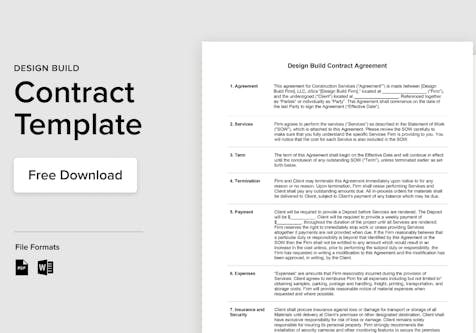
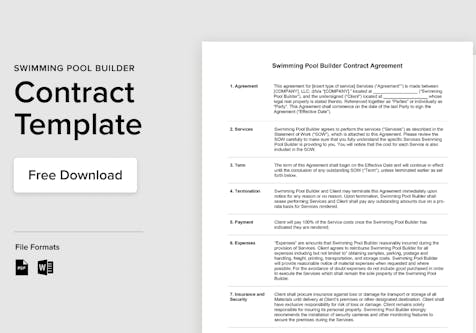
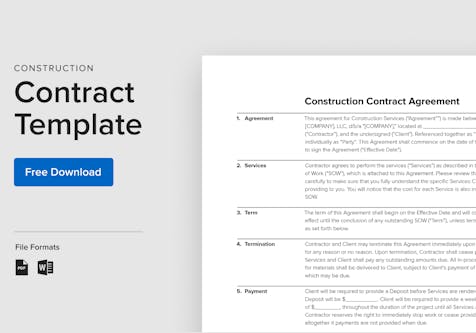

Join the conversation by commenting or asking a question below. The Houzz team reads every single comment, and we’ll get back to you by email if you need us!